Satirist Arrested Amidst Crackdown On Social Media Activists In Iran
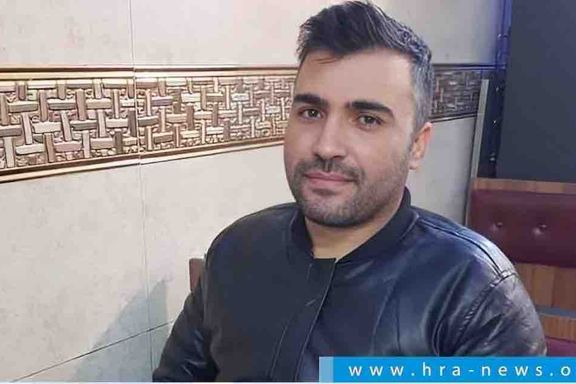
Renowned satirist Shaker Bouri has been arrested by intelligence agents in Iran.

Renowned satirist Shaker Bouri has been arrested by intelligence agents in Iran.
The arrest took place on July 31, and since then, there has been no information about his whereabouts or condition.
According to a statement from the Dadban Legal Education and Counseling Center, activists in Khuzestan province reported that Bouri disappeared after he visited the intelligence department of Abadan to collect his mobile phone after plainclothes forces previously raided his home, confiscated his cell phone, and took him away.
Bouri gained popularity on social media for his humorous yet pointed critiques of the country's officials and the prevailing issues. His satirical videos were known for their critical commentary, often touching on sensitive subjects.
Before his arrest, Bouri shared a picture of a history of anonymous calls from security institutions and disclosed that he was forced to delete some of his content.
Bouri's case is not an isolated incident, as the Iranian authorities have been cracking down on social media activists, artists, and comedians in recent months. Among them is Mehdi Etemad Saeed, a theater artist and actor who was arrested approximately two months ago.
Saeed, known for his work in underprivileged areas of Iran, especially in southern provinces and regions affected by natural disasters, has also been deprived of his right to legal representation and communication with his family.
Notably, several other artists and comedians including Taraneh Alidousti, Hengameh Ghaziani, Mohammad Sadeghi, Hamid Pourazari, Soheila Golestani, Zainab Mousavi, and others, have faced arrests and imprisonment during the Iranian uprising against the Islamic Republic.
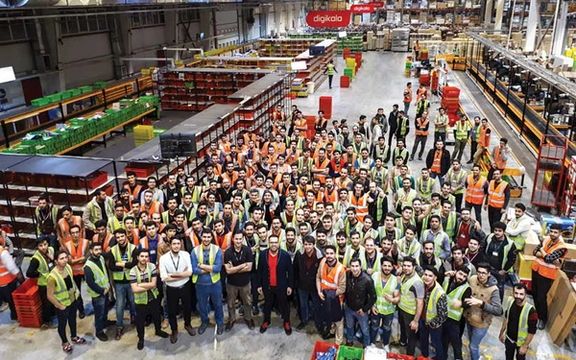
Days after several online shopping platforms were shut down by the Iranian government over lack of hijab, the Judiciary claimed it had no role in the decision.
Several online shopping platforms including online bookshop Taghcheh, online retailer Digikala, and marketing platform Azkey were shot down during the past few days not for their operations, but for the way their employees dressed in photographs posted on social media platforms.
The statement by the Judiciary Spokesman Massoud Setayeshi revealed the chaos surrounding the way the government enforces compulsory hijab and controls online businesses and social media platforms.
Setayeshi said that the Judiciary has never issued any order for the closure of online or other businesses. However, he confirmed that court cases have been launched for the online businesses about their employees’ hijab.
Meanwhile, adding to the confusion, Communications Minister Isa Zarepour also told the press on Tuesday that his ministry was not involved in the closure of online businesses. He said, “closure of a platform is not the right way to confront the employees.” Zarepour made it clear that “the right thing to do is confronting the employees," not punish the companies
Some of those platforms such as Digikala have tens of thousands of employees, subcontractors and businesses that supply the merchandise. Moderate website Rouiydad24 wrote in a report on Tuesday, “If we are involved in an economic war as the country’s officials say, why are you crippling people’s livelihood by shutting down online businesses?”
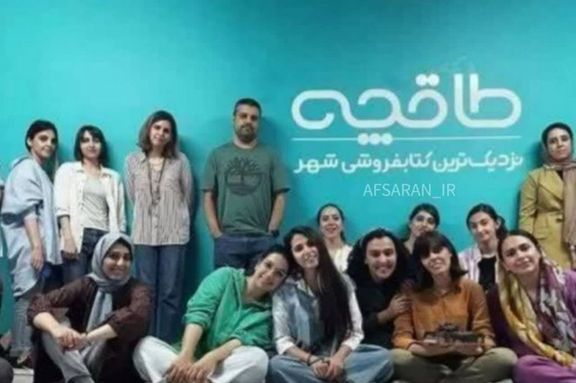
Donya-ye Eqtesad (Economic World) daily said: “The closure of online businesses affect thousands of their employees, providers, contractors and others involved in the business.” The daily further asked why platforms should be closed when the economy is the country’s biggest problem? Donya-ye Eqtesad also questioned the approach that widens the crisis of enforcing the compulsory hijab by extending it to online business, platforms and applications.
The daily went on to argue that “The people are the country’s most valuable asset. By making them unhappy, the expert workforce is likely to leave the country in a situation when we need them most.”
The daily also warned that the closures will do harm to the digital industry, which is the only growing sector in Iran’s economy.
Meanwhile, former Vice President Es’haq Jahangiri told reporters that the closure of online businesses threatens the private sector. He added that shutting down online businesses for hijab is like throwing a stone at a bunch of sparrows which also makes other sparrows flee.
He said this approach is worrying. While the production and services sectors are suffering from the current economic crisis, endangering their existence by shutting down online platform will make the private sector angry. He added: “The private sector needs security for its capital.”
Following the denials by various officials about their involvement in the closure of businesses, social media users noted the chaos in handling hijab and online activities in Iran and wrote that no one in the government is brave enough to accept responsibility for harsh measures. Some media outlets have quoted government spokesman Ali Bahadori as saying that President Ebrahim Raisi was unhappy about the decision to shut down those businesses, but he was not observed to say anything in public about the situation.
In the meantime, the identity of powerful state organs who had closed down online platforms remains a mystery.
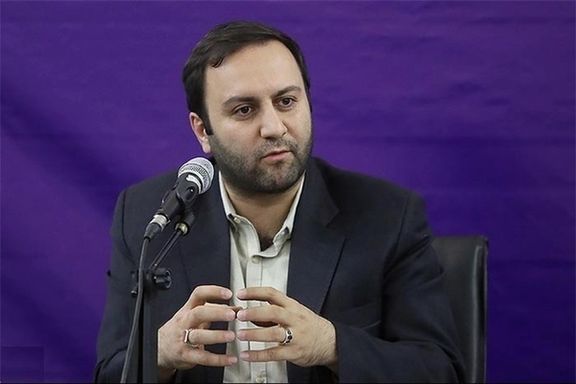
An Iranian lawmaker says identifying the culprits behind the livelihood pressure on citizens is a “secondary concern” and should not be “exploited by media opportunism”.
Referring to the alarming impoverishment of one-third of the Iranian population, Mohsen Pirhadi, the vice-chairman of the parliamentary committee for Iran’s Seventh National Development Plan said on Wednesday, "The rise in the country's population who live below the poverty line to 28 million is not solely attributable to policies implemented in the last two or three years."
Despite launching 12 development plans since the 1940s, aimed at building infrastructure, establishing key industries, and expanding public services and education, Iran still remains classified as a developing country, with an average economic growth rate of only 2.5 percent during the Islamic Republic.
Pirhadi further added that the impoverishment of such a significant portion of the population is a complex issue that “cannot be reduced to individual actions or political labels. Instead, it necessitates an in-depth examination and reevaluation of policies that have contributed to the economic decline of a substantial section of society.”
The "poverty line" in Iran represents the income level that covers the minimum essential needs of a household, with incomes below this line categorized as "absolute poverty." According to Iranian officials, the poverty line for residents of Tehran is approximately 300,000,000 rials (approx $600) per month, which is three times the minimum wage in Iran.
Like the other regime officials, he denied that the issue of widespread impoverishment is due to recent policies but said it is instead a result of various factors, including sanctions, the devaluation of the national currency, and management inefficiencies, which have accumulated over the past decade.
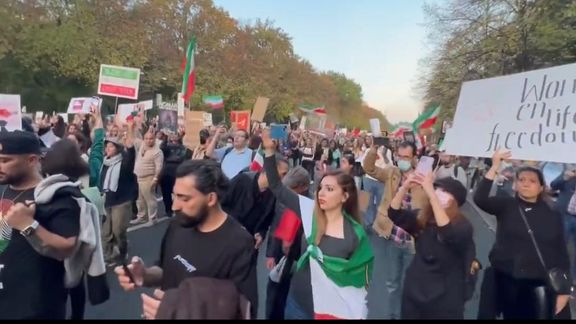
German-Iranians blasted Freiburg’s municipal government in Germany for voting last week to retain a twin city partnership with the Iranian city of Esfahan.
A majority of city council members from the left-wing parties, Greens and Social Democrats, rejected a motion from three small parties to end the controversial twin city partnership as protest to the Iranian regime’s gross human rights violations.
Iranian born Kazem Moussavi, who has campaigned for over twenty years against the dual city partnership, told Iran International that “It doesn’t matter to Mayor Martin Horn and his allies that independent civil society in Esfahan (Isfahan) is severely censored and brutally suppressed.
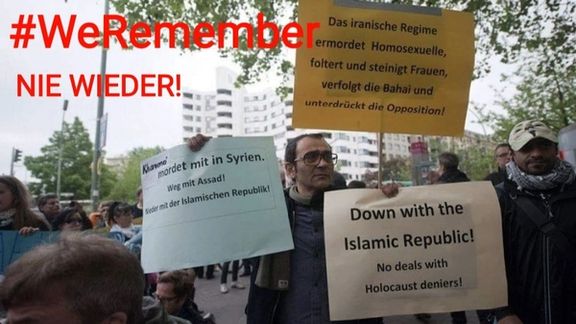
Dissidents and artists such as rapper Toomaj Salehi and Heshmatollah Tabarzadi were recently sentenced to long prison terms in Esfahan’s notorious torture prison, which is on the US sanctions list. Several women have also been executed there in recent months.”
The Freiburg Mayor has faced criticism from Amnesty International for going to great lengths to retain a city partnership with the clerical regime in Esfahan and for belittling grave human rights violations carried out by the regime.
According to the German media outlet SWR, Horn, who is not affiliated with a party, said he “wants to keep foot in the door” for the citizens of Iran by not shutting down the partnership. Horn refused to respond to numerous Iran International press queries.

Moussavi, who is the spokesman for the Green Party of Iran in Germany, also criticized Horn and the city council members who voted to retain the partnership, because they are ignoring that the morality police have been reactivated in Esfahan to ensure women wear the compulsory hijab.
The city council leader for the Free Voters, Johannes Gröger, issued a statement on behalf of his party and the JUPI (Young, Urban, Polarizing and Inclusive) and FL (Make Freiburg worth living) parties. Gröger said, “The conditions in Iran, especially in our partner city Esfahan, are getting worse and worse. Human rights are trampled on. The rights of women are disregarded, and the number of executions is increasing.” He added that “This is also supported by the incumbent mayor of our partner city and the local leadership elite.”
Behrouz Asadi, the head of the Democratic Forum of Iranians in Mainz, issued a public letter to Martin Horn ahead of the vote, urging him to end the twin city partnership and “send a clear statement against torture and executions and for the release of all political prisoners, especially with respect to the previously mentioned musician Toomaj Salehi.”
Asadi told Iran International that the city of Freiburg “must end its contact with the regime and support the citizens.” He said his organization will send a letter to the parties in Freiburg who voted to retain the partnership. He said the “morality police must be abolished” and termed the clerical regime a “terror regime and a murderous regime.”
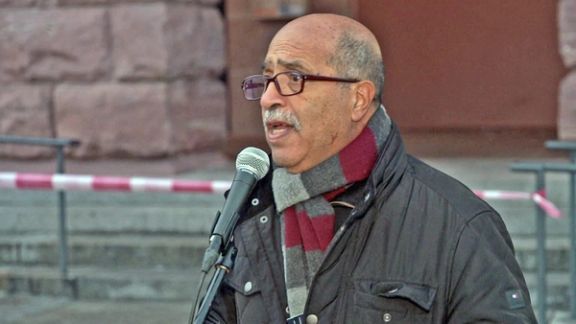
Asadi’s open letter was published in Persian and sent in German to Horn.
Freiburg, which is in the southwestern state of Baden-Württemberg, established its dual city partnership with Esfahan in 2000. Freiburg is the only city in Germany to have a municipal partnership with an Iranian regime-controlled city.
The German city of Weimar scrapped a partnership with Shiraz, in 2010, because regime officials on a trip to Germany refused to visit the Buchenwald concentration camp memorial.
The three parties opposed to the twin partnership in Freiburg said in their joint statement “The end of the twin city partnership should be a clear signal that Freiburg is committed to a world without oppression and human rights violations.”
Ulrich von Kirchbach, who serves as the Social Democratic Party’s cultural mayor in Freiburg, told SWR that “We don’t want to terminate any partnership because those who are now rebelling against the regime will feel completely abandoned.”
Simon Waldenspuhl, the leader of the JUPI political party, said the declaration issued by Freiburg in January is “too weak to express our contempt for such a brutal regime.” In January, Freiburg’s city government put the partnership on ice.
The FL city councilman, Wolf-Dieter Winkler, said “We increasingly must acknowledge that the persecution of people in Iran, including in our partner city Esfahan…even if declared dormant, no longer seems justifiable.
Horn is widely known as the German mayor who continues to do the heavy lifting for Iran’s regime via his strident activism to retain the dual city partnership. Critics argue Horn and the pro-Esfahan city council representatives have stained Freiburg’s reputation.
Sheina Vojoudi, who fled the Islamic Republic of Iran to Germany to escape persecution, told Iran International why a “German city prefers to turn a blind eye to all the human rights violations specifically in Esfahan.”

Vojoudi, who has been campaigning to end the partnership, added “Toomaj Salehi is a living proof of human rights violations in Esfahan who’s sentenced to six years and three months in prison for his critical rap songs. I would love to remind Freiburg of the Esfahan farmers who were shot by the regime forces for protesting severe water shortages. Hopefully the city council and the decision makers followed it closely that many of those innocent farmers lost their eyes.”
According to Vojoudi, who is an associate fellow for the Gold Institute for International Strategy, “Each partnership with this regime is a stab in our people’s back and of course mocks all the lives sacrificed and are being sacrificed for justice and humanity. Not condemnation but action proves that Germany truly cares for the human rights violations in Iran.”
Moussavi took Horn and the city council members, who support the partnership, to task for their alleged hypocrisy, noting that Esfahan is a center for Iran’s construction of atomic weapons, drones and rockets. Horn and the pro-partnership city council members ostensibly claim to be against jingoism and nuclear weapons.
Moussavi also sharply criticized the commissioner tasked with fighting antisemitism in Baden-Württemberg, Michael Blume, for failing to urge Mayor Horn and the city council members to pull the plug on the twin city partnership. Moussavi said “An antisemitism commissioner must not tolerate Freiburg’s relations with Esfahan, where Jews and other religious minorities are massively discriminated against and persecuted.”
Blume has faced massive criticism for lashing out at Iranian dissidents on Twitter as “corrupt exiled nationalists,” because they seek the toppling of the Islamic Republic and combat Iranian regime-sponsored Holocaust denial and antisemitism.
“Blume called people like me ‘corrupt exiled nationalists’ after I showed him leaked footage of Evin prison and told him that only criticism won’t help us and as a defender of human rights she should do more,” said Vojoudi.
She continued “But, in response, he insulted and discriminated against Iranians in exile. He called us corrupt but the rulers of their twin city [partnership], the officials of the Islamic Republic, are the most corrupt people on earth.”
Blume has refused to comment on his attacks on Iranian dissidents. In October, a court in Hamburg, Germany said statements made by Blume can be termed “antisemitic” and Blume’s critics can define him as “antisemitic.” The Simon Wiesenthal Center’s top Nazi hunter, Dr. Efraim Zuroff, urged Blume to resign.
Blume refused to answer Iran International media queries. The world-renowned human rights activist and former Soviet political prisoner, Natan Sharansky, told Iran International that Blume’s twitter activity is “antisemitic” because he stoked an anti-Jewish conspiracy theory.
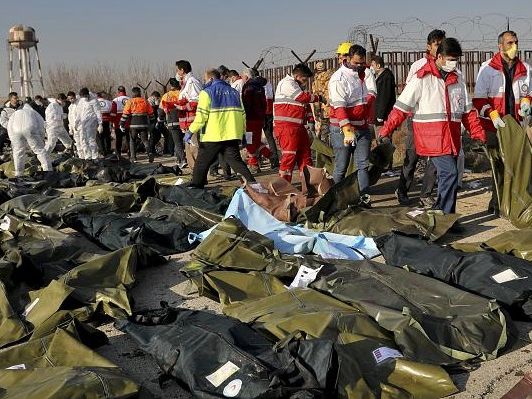
The Ontario Court of Justice once again declared that the shooting down of Flight PS752 by the Iranian regime constitutes "terrorist activity".
The court's ruling, issued on Monday, entitles the family plaintiffs of eight PS752 passengers to default judgment on liability, with damages set at $142 million. Each victim's family will receive over $16 million in damages and an additional $1 million for the pain and suffering caused by the tragic attack.
The court case was initiated by six individuals representing eight families of the victims of the flight. Notably, a similar verdict in favor of several other victims' families was previously issued in a case known as “Zarei et al vs Islamic Republic of Iran et al.”
Flight PS752 was shot down by two air-defense missiles fired by the IRGC shortly after taking off from Tehran's Imam Khomeini International Airport on January 8, 2020. The attack occurred in the aftermath of the IRGC's missile strikes on Iraqi bases hosting US troops, conducted in retaliation for the killing of IRGC Quds Force Commander Ghasem Soleimani in a US drone strike just five days earlier.
Tragically, all 176 passengers and crew members, including 63 Canadians, 10 Swedes, and 82 Iranian citizens, lost their lives in the disaster.
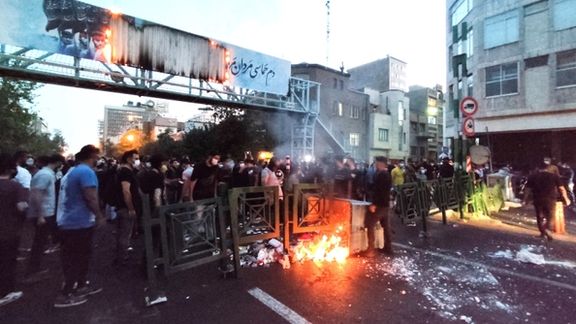
The commander of Iran’s Revolutionary Guard has said the solution to “enemy’s sedition” on the anniversary of last year’s extensive protests is “preemption.”
As the anniversary of anti-government protests approaches in September, Iranian officials are becoming more apprehensive about renewed unrest, and they double-down on their conspiracy theories about foreign plots to destabilize the regime.
In an address to a conference of Basij paramilitary officials in Tehran, Gen, Hossein Salami claimed that the “enemy” suffered a crushing defeat during last year’s protests, which he called “riots” and added that they will fail in inciting a sedition given the Islamic Republic’s “preparedness and vigilance”. He insisted that “The solution to [such plots] is prevention,” he added.
“The Basij [militia] and the IRGC were present on the scene in last year’s massive sedition -- with resourcefulness, perseverance, high degree of self-confidence and great hope, standing beside the people and defeating the enemy by exposing their plots,” he said.

The protests were sparked by the death of 22-year-old Mahsa (Jina) Amini in the custody of morality police in mid-September and lasted for months. Amini had been arrested for “improper hijab” and died in hospital because of fatal head injuries she had sustained at the time of her arrest.
Security forces and the Basij militia of the IRGC cracked down on protesters heavy-handedly, killing more than 500 citizens, many children, and arresting more than 20,000. Hundreds were left were permanent physical disabilities, such as losing one or both eyes as security forces fired shotgun ‘bird shots’ at protesters from close range.
Protests gradually subsided after several months but defiance of hijab rules as a form of civil disobedience has forced the government to try to stop the anti-compulsory hijab movement by taking various measures.
Iran's Supreme Leader Ali Khamenei has always attributed popular protests and uprisings to “enemy plots” and has often named the United States, Israel and Britain as the major culprits with European powers giving them assistance in attempts to incite “sedition” to destabilize and destroy the Islamic Republic.
“The events that took place these past few weeks were not merely street riots. They were detailed plots. The enemy initiated hybrid warfare [against the Islamic Republic],” Khamenei said in a speech on November 2, 2022, about the ongoing protests that had engulfed the country.
“The enemy, namely the United States, the Zionist regime, some insidious and malicious European powers, and some groups, entered the scene with all that was in their power,” he added while vowing again to take revenge for the US targeted killing of Qods Force commander Qassem Soleimani in Baghdad on January 3, 2020.
Salami described last year’s protests as “the most severe, most dangerous, most serious, most unequal and most massive global battle” against the Islamic Republic. Indeed, observers agree that the unrest was the most serious challenge the clerical regime faced since it seized power in the 1979 revolution.
Despite many threats against women who unveil, shutting down thousands of businesses where unveiling happens, crackdowns on social media, pressures on activists and prosecution of celebrity artists for defiance of hijab in public more and more women have been joining the movement over the past few months.
Thousands of women are now walking around, commuting, shopping, and jogging unveiled even in many smaller and more conservative regions of the country.
The government and judiciary have also proposed a bill to the parliament that if approved will impose heavy cash fines and other punishments including ban on social media use and leaving the country on ordinary citizens and celebrities, as well as shutting businesses for violations of hijab rules.